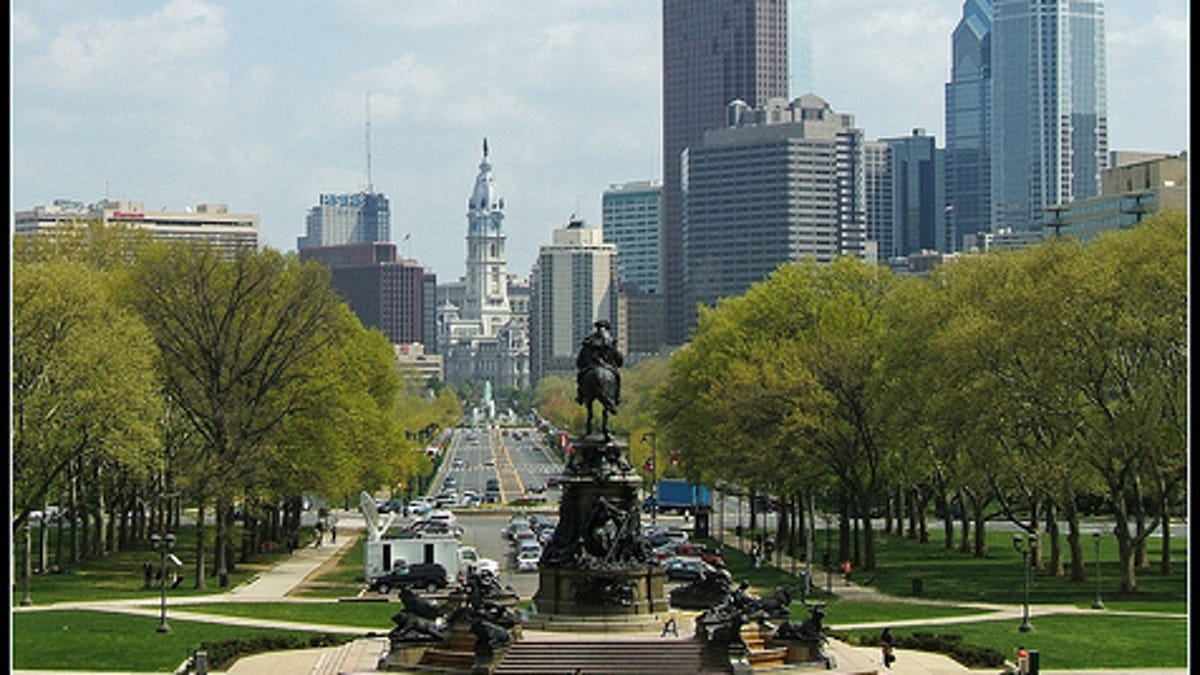Philly targets Facebook, Twitter after snowball fight turns ugly
Two city council members petition the mayor to sue social media sites because they allegedly don't do enough to monitor the organization of criminal activity.

Two members of the Philadelphia City Council are considering legal action against Facebook, Twitter, and MySpace in the wake of a "flash mob" earlier this week that turned violent, according to a letter sent to the city's mayor and obtained by CNET. They claim that social-media sites don't do enough to keep tabs on violence that could be organized through their communication channels.
No charges have been drawn up, in the letter the council members ask the permission of Mayor Michael Nutter to "pursue the possibility" of a lawsuit.
"It is disheartening; to say the least, that these youth so casually disrespected our residents, businesses, customers, visitors, and our police department," the letter dated Wednesday explained of the mayhem, which was reportedly organized via text messages and other mass communication, possibly Facebook, and resulted in a rampage through the Macy's department store at the Market East mall and a massive snowball fight. No one was injured, but at least 150 teenagers were involved and 16 arrests were made, according to The Philadelphia Inquirer.
"While they certainly owe this city an apology and deserve to be punished under the fullest extent of the law, we believe that social media outlets should also bear some of the blame." The letter, written by council members Frank DiCicco and James F. Kenney, explains that this is the second such time a band of mischievous teens has formed via social media and went on to destroy property. "We believe that the lack of monitoring of these sites allows for mass, organized riots to occur."
On one hand, suing Facebook in this case is like suing the phone company if telephone calls were used to plot a bank robbery. It's not the responsibility of a social network with 400 million members around the world to monitor conversations between mischievous high schoolers.
But stories like these do pop up every once in a while: a water-fight flash mob organized on Facebook two years ago ended up trashing an award-winning public garden in England; around the same time, when 7,000 people RSVP'ed to the Facebook invite for a "Night of Mayhem" in a British seaside town, the local cops imposed a 24-hour ban on liquor. Obviously, it's possible for a small party organized on Facebook to snowball (literally) out of control. Human rights groups, too, have voiced concerns about how tools like Facebook and Twitter may make it easier for terrorists and hate groups to organize online.
Do authorities just not know how to find this stuff? Much of the content on Facebook is now publicly available, and hence accessible to millions of people who might not otherwise hear about it (or be expected to attend), but the site isn't equipped with the most user-friendly search capabilities and hence requires a bit of digging. Twitter now offers optional geotagging as well as a strong search engine, but tracking down conversations in the mess of jargon, replies, and hash tags can prove befuddling to those who aren't already Twitter users.
Social networks have, in the past, cooperated with authorities to provide information on registered sex offenders who may be using the sites for criminal activity. Out-of-control parties and violent snowball fights are obviously a different story, and cooperating with one set of authorities could start a complicated precedent for Facebook or Twitter if other lawmakers in countries with less respectable free-speech permissions wanted to clamp down on political opponents' organization by justifying it as similar riot control.
It remains to be seen whether, with a little more social-media expertise, Philadelphia's authorities could have been better attuned to what was going to happen.

